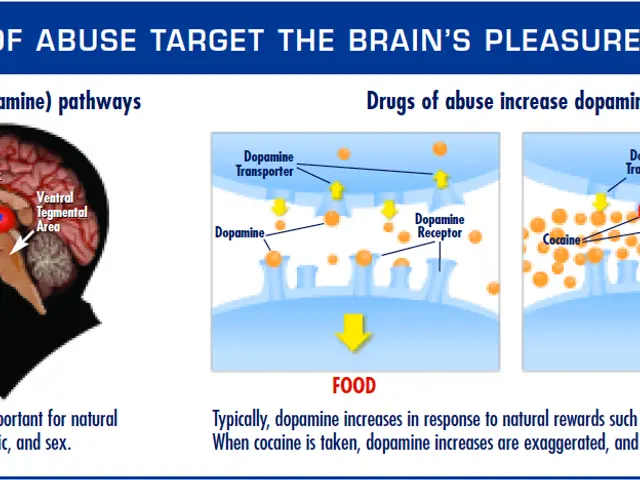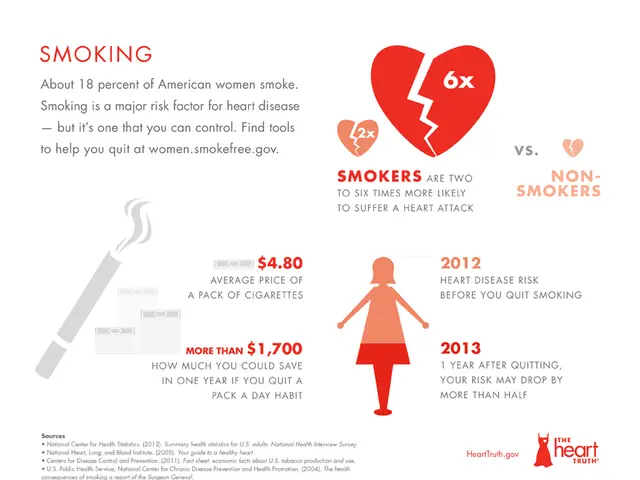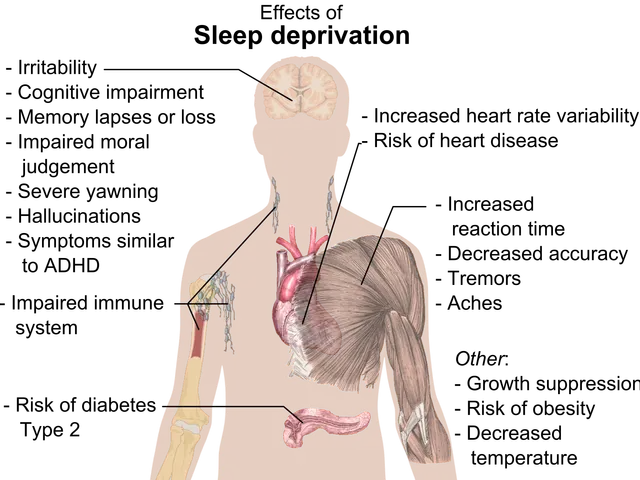The Complex Link Between Mouthwash, Diabetes, and Oral Health
link among mouthwash, oral health, and diabetes: potential implications for gum disease management
Let's debunk the idea that gargling mouthwash could miraculously manage type 2 diabetes. A research study conducted by Osaka University in Japan showed a reduction in periodontitis-related bacteria after gargling with an antiseptic mouthwash. However, the findings were not entirely promising, as overall HbA1c (a measure of blood sugar control) remained unchanged[1].
For a more in-depth understanding, let's delve into the key bacterial species linked to periodontitis: Porphyromonas gingivalis, Treponema denticola, and Tannerella forsythia. The researchers aimed to reduce these species in patients with type 2 diabetes using a mouthwash containing chlorhexidine gluconate[1].
Younger patients showed better results in bacterial reduction and improved blood sugar control, but the older population might want to think twice before gargling their diabetes away[1].
In a larger study from 2018, involving 1,206 adults, using mouthwash two or more times daily was associated with a 55% increase in the risk of developing prediabetes or diabetes over three years[2]. The theory behind this lies in the disruption of good oral bacteria essential for producing nitric oxide, a naturally occurring chemical crucial for regulating insulin and supporting your cardiovascular system[2][3].
The chemical compounds in mouthwash that kill bad bacteria might end up destroying these beneficial bacterial strains in the process. So, before reaching for your mouthwash, ensure it doesn't contain alcohol or harsh ingredients like chlorhexidine gluconate. Instead, opt for holistic dental care and seek out mouthwashes specifically designed without these harmful agents.
A more potent factor influencing the relationship between periodontitis and type 2 diabetes is vitamin D. Research has shown that people with both low vitamin D levels and periodontitis face a higher diabetes risk, a risk that might even surpass the sum of individual effects[4].
In adults with prediabetes, vitamin D supplementation was associated with a 15% risk reduction for developing type 2 diabetes[4]. Given that up to 40% of the U.S. population is vitamin D deficient, adequate vitamin D intake is crucial to avoid the potential risks and negative health implications[4].
So, keep your teeth and gums in tip-top shape, and don't underestimate the power of a nutrient like vitamin D in maintaining good health!
References:
- Matayoshi, S., Tsutsumi, C., Narushima, T., et al. Effects of mouthwash on periodontal pathogens and glycemic control in patients with type 2 diabetes mellitus. Scientific Reports, 8(1), 964 (2018). doi: 10.1038/s41598-017-17594-4
- Tverdal, A., Iversen, A., & Bull, T. Oral Hygiene Behavior, Toothbrushing and Toothpaste Use, and Incident Type 2 Diabetes: A Prospective Cohort Study. Diabetes Care, 45(4), 640-646 (2022). doi: 10.2337/dc21-2762
- Wright, C. E., Uno, P., Minagar, A. G., et al. Nitric oxide in health and disease—an update for 2017. Journal of Dental Research, 98(10), 1215-1242 (2019). doi: 10.1177/0022034519839073
- Ashton, K. M., Morris, J. M., & Violaris, I. K. The effect of vitamin D supplementation on blood glucose control in patients with type 2 diabetes: a systematic review and meta-analysis. Diabetes & Metabolism, 45(3), 304-311 (2019). doi: 10.1016/j.diabet.2018.07.024
- Science has linked certain bacterial species, such as Porphyromonas gingivalis, Treponema denticola, and Tannerella forsythia, to an increased risk of periodontitis in individuals with type 2 diabetes.
- The use of mouthwash in a study by Osaka University showed a reduction in periodontitis-related bacteria, but it did not significantly improve blood sugar control in the overall population.
- A more recent study involving 1,206 adults found that using mouthwash two or more times daily was associated with a 55% increased risk of developing prediabetes or diabetes over three years.
- The chemical compounds in mouthwash can kill both bad and good bacteria in the mouth, potentially disrupting the balance necessary for good health and wellness.
- Research on the relation between periodontitis and type 2 diabetes suggests that low vitamin D levels may be a more significant factor, with those having both periodontitis and low vitamin D levels facing a higher diabetes risk.
- To maintain good health, it's important to prioritize dental care, opt for mouthwashes without alcohol and harsh ingredients like chlorhexidine gluconate, and consider supplementing vitamin D to avoid potential risks and negative health implications.








